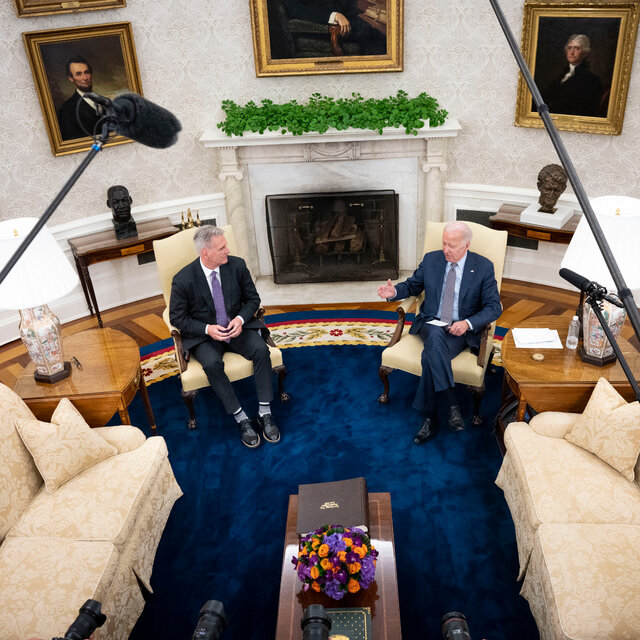
President Joe Biden and House Minority Leader Kevin McCarthy have reached a historic agreement on raising the debt ceiling deal to safeguard the USA from a potential default. Despite the ticking clock and financial instability, both leaders prioritized the American people, setting aside partisan differences.
The impending debt ceiling deal deadline had instilled uncertainty and anxiety across the USA.
Not raising the limit would result in severe consequences: possible default on financial obligations, soaring interest rates, and a significant economic blow. Recognizing the gravity of the situation, President Biden and Leader McCarthy engaged in intense negotiations to find a bipartisan solution.
The agreement reached between Biden and McCarthy demonstrates a commendable display of leadership and a commitment to the greater good. It reflects a rare moment of cooperation and compromise in an increasingly polarized political landscape. By setting aside differences, the leaders emphasized the importance of working together for national stability.
The deal’s terms raise the debt ceiling to ensure the government has the necessary funds to meet obligations. This temporary relief allows the United States to pay bills, honor commitments, and maintain a reliable reputation in financial markets. It provides a sense of reassurance to both domestic and global investors, who have been closely monitoring the situation.
The debt ceiling agreement not only avoids a potentially catastrophic default. But also paves the way for more substantial discussions on fiscal responsibility and long-term economic stability. The compromise reached by Biden and McCarthy should serve as a catalyst for broader bipartisan cooperation on critical issues. Such as infrastructure, healthcare, and climate change. It sends a message to the American people that their elected leaders can rise above partisanship and work together for the greater good.
While the debt ceiling deal is undoubtedly a significant step forward. It should not be viewed as a comprehensive solution to the country’s fiscal challenges. The United States still faces important long-term considerations, such as reducing the national debt and addressing spending priorities. However, the agreement provides a necessary respite and an opportunity for lawmakers to engage in thoughtful discussions on these complex issues without the looming threat of default.
In conclusion, President Joe Biden reached the debt ceiling deal. And House Minority Leader Kevin McCarthy represents a critical milestone in averting a potentially catastrophic default. Their bipartisan agreement showcases the power of leadership, compromise, and a shared commitment to the nation’s stability. While challenges persist, this deal opens the door for further discussions on fiscal responsibility and cooperation. It serves as a reminder that, even in a politically divided climate. elected officials can put the best interests of the American people first and work together to overcome adversity.
